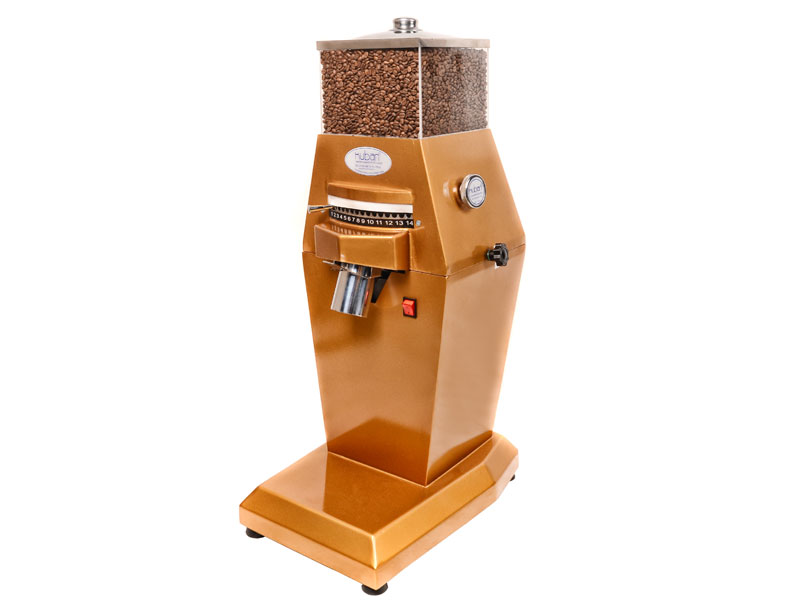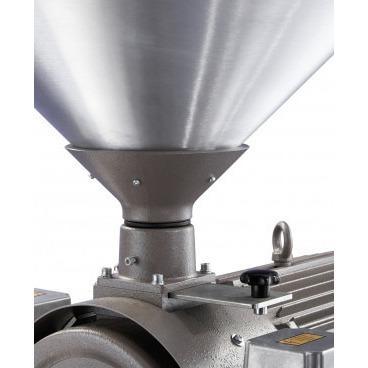Top Reasons Every Café Requires an Industrial Coffee Grinder
Top Reasons Every Café Requires an Industrial Coffee Grinder
Blog Article
How to Choose the Perfect Industrial Coffee Grinder for Your Organization
Choosing the perfect commercial coffee mill for your business is a complex decision that needs cautious consideration of numerous critical aspects. Furthermore, recognizing the numerous kinds of grinders readily available can significantly affect your operational effectiveness.
Assess Your Grinding Needs
When choosing an industrial coffee grinder, one must first evaluate their grinding needs to guarantee optimum performance and consistency. This preliminary analysis includes comprehending the quantity of coffee to be refined daily, as well as the wanted work dimension for numerous developing techniques. A high-capacity grinder may be needed for services serving huge amounts of coffee, while smaller sized operations could find a much more compact design adequate.
Moreover, it is crucial to consider the sorts of coffee beans being utilized, as different beans may call for specific grinding methods to attain the very best taste account. As an example, oily beans may demand a grinder designed to handle such characteristics without overheating or clumping.
Specialized coffee companies frequently demand accurate work dimensions to boost extraction and taste, making it crucial to choose a mill that can supply uniform outcomes. Reviewing the offered space and electric demands will assist in picking a mill that fits effortlessly into your operational workflow.
Understand Grinder Types
Recognizing the different kinds of industrial coffee grinders is crucial for making a notified choice that meets details functional requirements. There are mainly two classifications of grinders: blade grinders and burr mills.
Blade grinders utilize rotating blades to slice the coffee beans, causing an inconsistent work dimension - Industrial Coffee Grinder. While they might be a lot more economical, they are frequently not ideal for commercial applications where accuracy is vital
On the other hand, burr grinders offer a more consistent grind by squashing the beans in between 2 surface areas. They can be additional categorized right into flat burr and conelike burr mills. Apartment burr mills supply a consistent grind dimension and are generally favored for espresso prep work, while cone-shaped burr mills are functional and can handle a series of brew methods, from espresso to French press.
When picking a mill, consider the specific requirements of your company, consisting of desired work consistency, production quantity, and the sorts of coffee drinks you intend to provide - Industrial Coffee Grinder. Each mill kind has its limitations and advantages, so recognizing these nuances allows notified decision-making that lines up with operational objectives
Evaluate Grind Dimension Consistency
Accomplishing grind size consistency is necessary for generating top quality coffee, as variations in particle dimension can substantially influence removal and flavor. When selecting an industrial coffee grinder, it is critical to assess exactly how well the equipment keeps harmony in work dimension across different batches. Inconsistent grind dimensions can result in unequal extraction, resulting in a cup that might taste weak or extremely bitter.
To examine work size uniformity, think about grinders with attributes such as flexible work settings and high-quality burrs. Burr grinders, specifically, excel in producing consistent particle sizes contrasted to blade grinders. The material and shape of the burrs play an important function, with stainless-steel and ceramic choices offering durability and precision.

Take Into Consideration Manufacturing Capability
In the hectic globe of coffee production, considering manufacturing capacity is vital for organizations intending to satisfy need without sacrificing quality. The manufacturing ability of a commercial coffee grinder directly affects a company's capability to satisfy orders successfully, take care of supply, and reply to varying market patterns.
When examining production ability, it is essential to examine the mill's result rate, normally measured in extra pounds per hour. This measurement ought to align with your organization's projected sales volume and development targets. As an example, a coffee shop with a high turnover might need a mill that can process numerous hundred pounds daily, while a smaller sized operation could be sufficient with a lower capability design.
Additionally, think about the type of coffee being processed. Various beans and blends might impact grinding rate and efficiency, requiring a mill with the ability of handling diverse manufacturing needs. It's likewise worth factoring in the news grinder's ability to maintain consistent quality under high result problems, as any type of fluctuations can affect the final product.
Ultimately, selecting a mill that matches your business's manufacturing capability will certainly guarantee you stay competitive and responsive to customer expectations.

Budget and Upkeep Aspects
When evaluating the appropriate industrial coffee maintenance, budget plan and mill elements play a considerable duty in the general decision-making process,. An initial financial investment in a premium grinder can produce lasting benefits, but it's vital to develop a clear budget that lines up with your company's operational requirements. Think about both the acquisition rate and possible functional expenses, such as energy usage and substitute parts.
Industrial coffee mills call for regular upkeep to make sure optimum efficiency and durability. Examine the producer's suggestions for maintenance, including cleaning timetables and parts substitute, as these will impact lasting functional prices.

Purchasing a grinder that is long lasting yet easy to maintain can save cash over time. While lower-priced options might be tempting, they may this link incur greater upkeep expenses and lowered efficiency. Ultimately, balancing first costs with long-lasting maintenance and operational effectiveness will direct you to the most effective option for your company's coffee grinding requirements.
Final Thought
Selecting the optimal commercial coffee grinder demands a complete assessment of grinding requirements, grinder types, grind dimension uniformity, manufacturing ability, and financial factors to consider. An appropriate grinder not just improves the quality of the coffee generated however likewise adds to the overall success and earnings of the enterprise.
Specialized coffee services typically demand specific work sizes to enhance extraction and taste, making it essential to pick a mill that can deliver consistent results. Apartment burr grinders provide a constant grind size and are usually preferred for espresso preparation, while cone-shaped burr grinders are flexible and can take care of an array of brew approaches, from coffee to French press.
When choosing a commercial coffee mill, it is vital to evaluate just how well the machine maintains harmony in work size throughout various batches. Burr mills, in certain, succeed in generating consistent particle sizes compared to blade mills.Selecting the suitable industrial coffee grinder requires a detailed assessment of grinding demands, mill types, grind size consistency, production capacity, and budgetary considerations.
Report this page